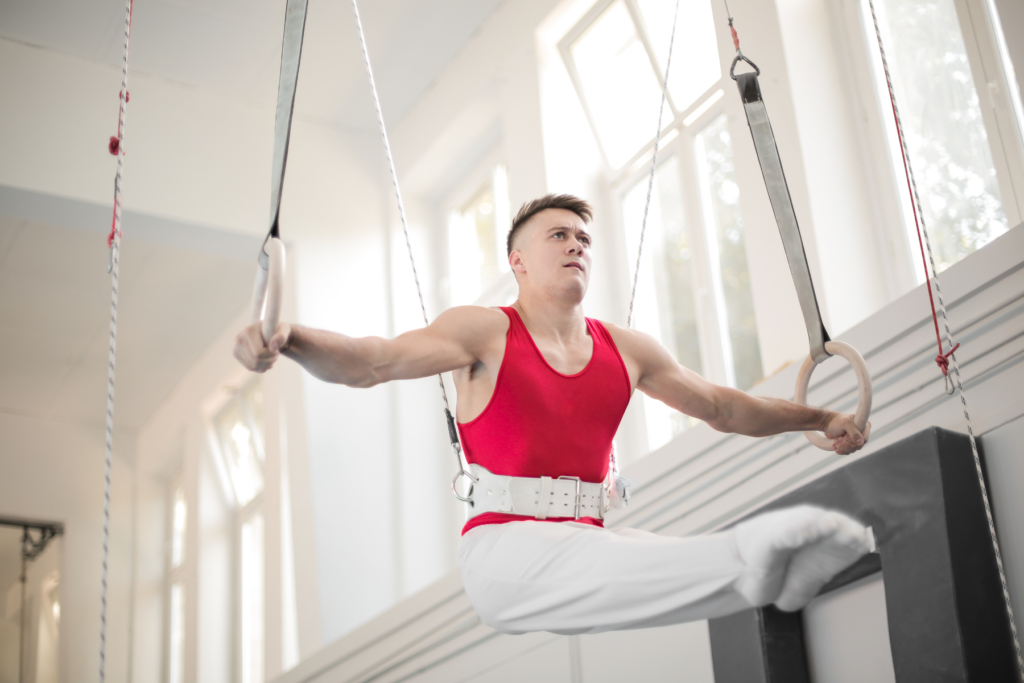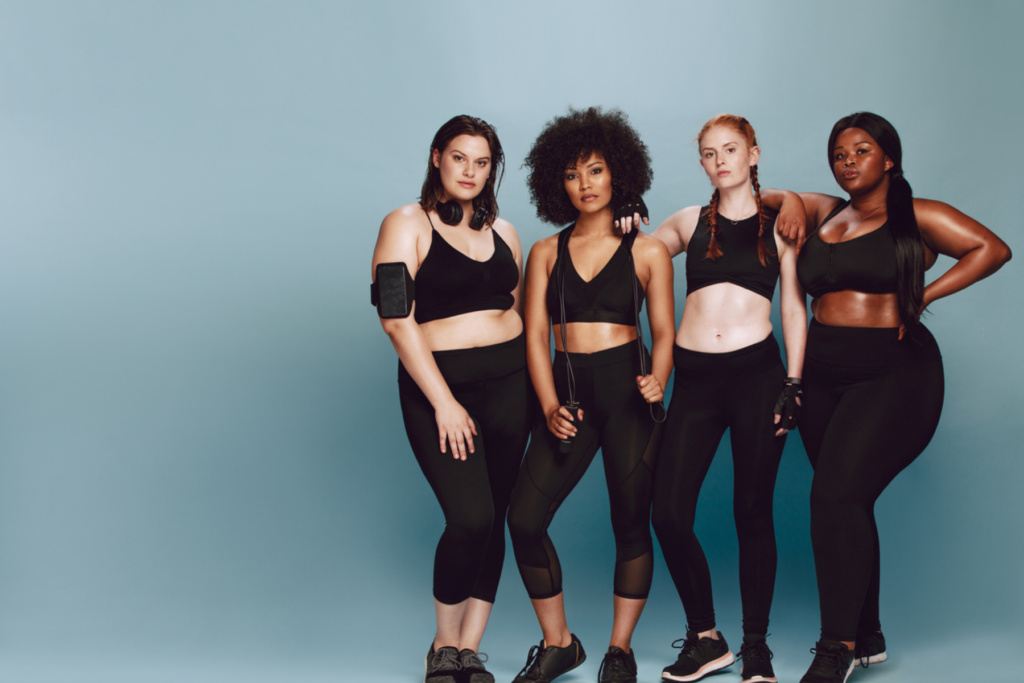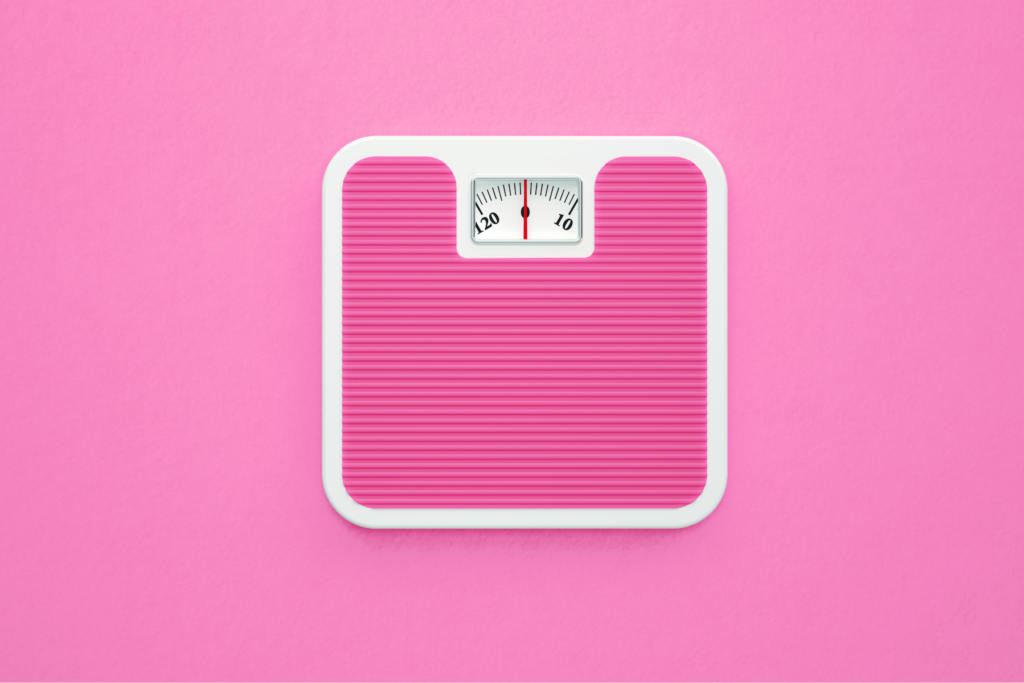Loving Your Body as an Athlete
June 13, 2022

Loving your body can be hard for anyone. For athletes, things can get even more complicated. Let’s talk about why athletes are at a higher risk of body image issues and the steps you can take to start loving your body as an athlete.
The Sportsman Mentality
There are some common personality traits among athletes. For example, athletes tend to be perfectionists and are often highly competitive. Although these traits may contribute to an athletes success, they can also put one at a higher risk of body image concerns.
Perfectionism may lead athletes to attempt to achieve unattainable physiques and adhere to strict diets and/or exercise routines. Further, the tendency for “competitive thinness” or competitive body comparisons with those in their sport and/or those outside of it can also be common and problematic.
The Ideal Physique
Many sports are associated with an “ideal” or stereotypical physique. As a result, athletes may strive to achieve this “ideal” with the mentality that it will enhance their performance. This is especially prevalent in sports with an aesthetic or performance value attached to the required athleticism, such as dance, cheer and gymnastics. However, in many cases, the way an athlete trains and how they are expected to look are often at odds with each other.

The Contradiction
Interestingly, many athletes have also been observed to have two different body images. One image tends to be related to their sport while the other is completely separate. This can make the achievement of body satisfaction challenging. For female athletes, this contradiction may be due to the “thin paradox” which occurs when an athlete’s body that is ideal for performance doesn’t align with society’s standards. As a result, female athletes develop a desire for two conflicting physiques. Male athletes, on the other hand, may struggle with an increased emphasis and need for musculization and may experience muscle dysmorphia.
Sports Uniforms
Another factor to consider is sports attire. Athletes may feel pressured to “look good” or a certain way in their sport uniforms. Competition attire can increase unhealthy body comparisons, leading to body dissatisfaction. As a result, it can take the focus away from competition and impact performance negatively.
Loving Your Body as an Athlete:
So what do you do if you are struggling with body image concerns while striving to be a high-performing athlete? Follow these tips to help move away from a physique-focused mindset to a performance-focused mindset:
1. Embrace your uniqueness: every body is different.
There is no getting around it. As much as you may feel like this works against you, it actually works to your advantage. As an athlete, there are certain things about your body and/or body type that likely give you a leg up in the competition and in your sport.
Take a minute to think of the traits about your body, whether you like them or not, that give you this competitive edge. Jot these observations down where you can see them on a daily basis.

2. Call yourself out on the lies that you are telling yourself.
“If I weighed less, maybe I could run faster.” “If my body were more or less ______, maybe my coach would make me a starter.”
“If, maybe” statements only get us into trouble. We don’t exactly know what would happen if a, b, or c were the case. Further, a lot of these thoughts are based on preconceived notions about certain body types and performance that don’t necessarily hold up when it comes to success.
In addition, these statements may also be based off of the idea that we have full control over changing our body and/or weight. However, weight is a “ripple effect.” It is something that can be impacted by our habits like training, sleep, fueling etc. It can not be directly controlled. In fact, the set point theory states that a genetically-based control mechanism ultimately regulates our metabolism and weight keeping it within a certain predetermined level.
3. See Yourself as an Athlete and Stop Discounting the Positive.
As an athlete, you are strong, powerful, and often stretch your abilities through training to step up to a challenge. Embrace this. Take note of your achievements and where you started. When we are down on ourselves, we will often only focus on the negatives. Celebrate your strength, progress, and overall performance. Start by calling out three to five performance focused achievements that you have made specific to you sport.
4. Use social media to fuel a positive body image.
Social media undeniably increases the tendency for body comparisons. Aim to follow inspiring body positive hashtags and surround your feed with real athletes who embrace their bodies and their athleticism. In addition, try following body positive hashtags like #bodypositive, #bodypositivity, #loveyourselfie, and #strongerthanyesterday.
5. Step off the scale.
Weight really is just a number. Despite what we’ve been told most of our lives, more and more research backs up the fact that focusing on one’s weight does not equate to improved health and/or performance outcomes. In fact, it does more harm than good by causing increased food and/or weight preoccupation, decreased self-esteem, eating disorders, and weight stigmatization.

Instead, step off of the scale and shift your focus to healthy habits and taking care of your body as an athlete:
-Eat when you are hungry.
-Fuel and recover adequately.
-Ensure adequate fruit and vegetable intake.
-Hydrate regularly.
-Follow an effective, but not excessive, training regimen that includes adequate rest days.
-Get 7-9 hours of sleep per night.
In Conclusion…
You are more than your body as a person and as an athlete. Recognize the amazing things that your body does for you on a daily basis and in your sport. Incorporating these five strategies into your life may help you to start loving your body as an athlete. Over time and with practice, you will notice a positive shift in your perspective and maybe even your performance too.
[…] a former athlete, the pressure one can feel to fit the “body of an athlete” can be strong. There is often this idea that you NEED to workout to burn the most calories, reach […]
[…] much as an athlete may desire a different body size or shape, it’s simply not that easy. Size diversity exists amongst all types of people, including […]
[…] Living up to a specific body ideal can be even more challenging when the athlete body ideal contradicts society’s body ideal. We talk about the contradiction more in depth in our blog article Loving Your Body as An Athlete. […]